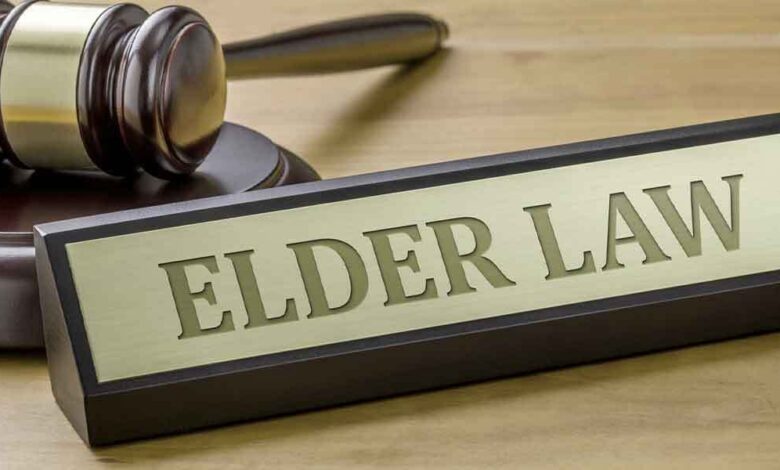When to Hire an Elder Law Attorney?

As loved ones age, navigating the legal, financial, and healthcare challenges they face can become overwhelming. From planning for long-term care to addressing potential elder abuse, there are many situations where specialized legal guidance is essential. But most of you keep wondering – when should I hire an elder law attorney? Well, look no further! The answer is here!
These professionals focus on the unique needs of seniors, helping to ensure their rights are protected and their future is secure. Knowing when to hire an elder law attorney can make all the difference in creating a plan that supports your aging loved one’s needs.
Signs You Need an Elder Law Attorney
There are several scenarios where hiring an elder law attorney is not just helpful but crucial. Here are some common signs that you may need their expertise:
Aging Parents or Relatives Requiring Care
As your parents or relatives grow older, you may notice they need assistance managing daily tasks or healthcare. An elder law attorney can help you explore legal options, such as setting up powers of attorney (POA) or healthcare directives, ensuring their wishes are honored if they become unable to make decisions.
Diagnosis of a Debilitating Condition
Conditions like Alzheimer’s or dementia often bring legal challenges, as affected individuals may lose the ability to make informed decisions. An elder law attorney can guide families in establishing guardianships, trusts, or other legal arrangements to safeguard the individual’s well-being and assets.
Need for Long-Term Care Planning
Planning for long-term care, such as nursing home or assisted living arrangements, requires both financial and legal preparation. Elder law attorneys can assist in understanding care options, navigating contracts, and protecting assets while ensuring eligibility for benefits like Medicaid.
Medicaid or Veterans’ Benefits Eligibility Questions
Determining eligibility for Medicaid or veterans’ benefits can be complex. Elder law attorneys specialize in this area, helping families navigate the application process, understand qualification rules, and avoid costly mistakes that could delay or deny benefits.
Estate Planning or Will Updates
If your aging loved one needs to create or update their estate plan, an elder law attorney can help draft wills, establish trusts, and create plans that minimize tax liabilities. These professionals ensure documents reflect current laws and accurately express your loved one’s intentions.
Guardianship or Conservatorship Concerns
When an elderly individual is no longer capable of managing their personal or financial affairs, families may need to establish guardianship or conservatorship. Elder law attorneys can represent you in court and ensure the process is handled legally and ethically.
Elder Abuse or Exploitation Suspicions
If you suspect abuse or exploitation, an elder law attorney can take legal steps to protect your loved one, secure their assets, and hold perpetrators accountable.
What to Expect from an Elder Law Attorney
Hiring an elder law attorney involves more than just legal advice; it’s a partnership aimed at securing the best outcomes for aging individuals. Here’s what all you can get started with:
Initial Consultation and Assessment
During your first meeting, the attorney will gather information about your loved one’s situation, including their health, financial standing, and legal needs. This consultation allows them to identify priorities and potential issues.
Development of a Personalized Plan
An attorney creates a detailed plan tailored to the specific requirements of your loved one. This plan may include strategies for long-term care, asset protection, or benefit eligibility.
Assistance with Legal Documents
Professionals can help us prepare and file important legal documents, such as:
- Wills: Ensuring assets are distributed as intended.
- Trusts: Protecting assets and avoiding probate.
- Powers of Attorney: Assigning trusted individuals to make impactful financial or medical decisions.
- Healthcare Directives: Outlining medical care preferences.
Representation in Court
If legal disputes arise, such as guardianship or probate issues, an elder law attorney provides representation in court. They advocate for your loved one’s best interests and work to resolve conflicts efficiently.
Ongoing Support and Guidance
The needs of elderly individuals often evolve over time. Elder law attorneys offer ongoing support, ensuring legal arrangements remain effective and compliant with changing laws or circumstances.
Conclusion
Hiring an elder law attorney is a crucial step in protecting the rights and well-being of aging loved ones. From long-term care planning to addressing complex legal issues like Medicaid eligibility or elder abuse, these professionals provide invaluable guidance and support. If you’re facing any of the scenarios discussed above, consulting with an experienced elder law attorney from Cary Estate Planning can help you navigate challenges and secure peace of mind for your family.
Taking proactive steps today can ensure that your loved ones are cared for and their wishes respected, no matter what the future holds.





